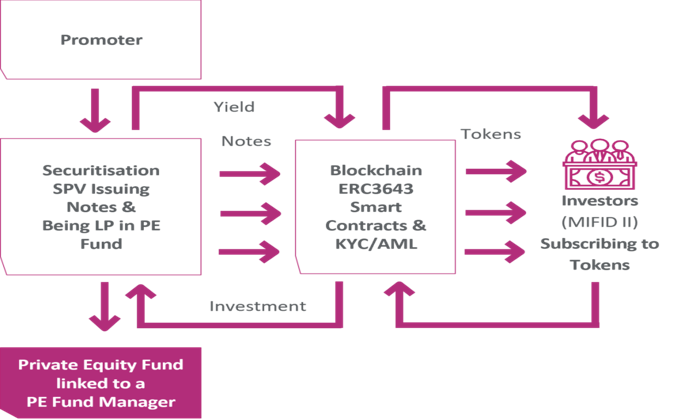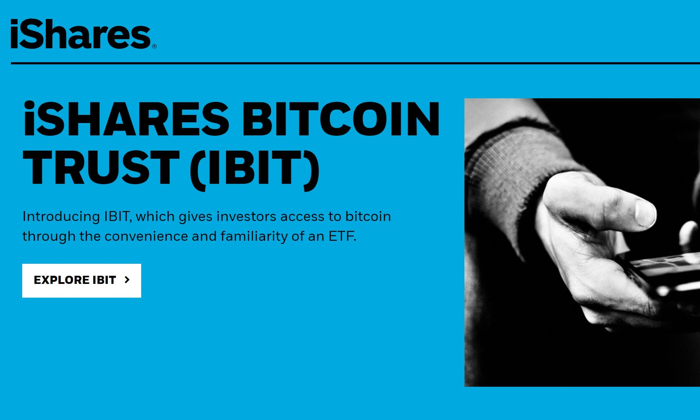The emergence of a tokenized funds trading platform marks a significant advancement in the realm of institutional trading, enabling participants to leverage cryptocurrency collateral like never before. Launched collaboratively by Standard Chartered, OKX, and Franklin Templeton, this innovative pilot unlocks a paradigm shift for asset management, allowing institutions to utilize tokenized money market funds as collateral in off-exchange transactions. By harnessing cutting-edge blockchain technology, the platform ensures compliance with stringent security and liquidity standards, essential for institutional trust. Roger Bayston from Franklin Templeton emphasizes that this integration of on-chain assets facilitates true ownership and expedites the settlement process, thus modernizing transactional infrastructure. This initiative promises to enhance digital asset custody through reliable arrangements, fostering the future of trading and investment strategies in a rapidly evolving digital landscape.
Introducing a novel trading interface, the tokenized funds trading platform is designed specifically for institutional investors seeking efficient avenues in the digital asset realm. This cutting-edge system allows users to engage with digital money market funds, revolutionizing how these assets can be collateralized in trading strategies. With the power of blockchain technology at its core, this platform not only ensures compliance but also enhances security and liquidity — critical factors for institutional stakeholders. Collaborations between major financial entities like Standard Chartered and OKX emphasize the increasing acceptance of tokenized financial instruments in mainstream finance. As institutions recognize the value of cryptocurrency collateral in their operations, the landscape of digital trading continues to evolve, paving the way for a more integrated and efficient market.
Tokenized Funds Trading Platform: Pioneering Institutional Collaboration
The recent launch of the tokenized funds trading platform by Standard Chartered, OKX, and Franklin Templeton marks a significant milestone in institutional trading. This innovative platform enables institutional clients to leverage cryptocurrency and tokenized money market funds as collateral for off-exchange transactions. By integrating cutting-edge blockchain technology, the platform not only enhances operational efficiency but also ensures compliance with regulatory standards. As institutions increasingly seek ways to incorporate digital assets into their portfolios, this pilot program provides a glimpse into the future of trading with tokenized assets.
Institutional trading is evolving rapidly, and the introduction of the tokenized funds trading platform is a clear reflection of this shift. With prominent firms like Franklin Templeton’s Digital Assets division minting assets on-chain, clients from OKX can seamlessly integrate these advanced financial products into their trading and risk management processes. This approach eliminates the traditional barriers associated with asset ownership, providing true transparency and reliability within the digital asset ecosystem.
The Role of Blockchain Technology in Digital Asset Custody
Blockchain technology is at the forefront of transforming digital asset custody solutions. The secure and immutable nature of blockchain allows for instantaneous settlement of trades and ownership verification without the need for traditional banking infrastructure. Roger Bayston from Franklin Templeton emphasizes that integrating native blockchain technology is not just about technological advancement; it fundamentally reshapes how assets are managed and owned in the financial space. For institutional clients, this represents an opportunity to reduce risk and enhance capital efficiency by ensuring that assets are safeguarded within a robust framework.
As digital assets gain traction in institutional trading, having a trusted custody solution becomes paramount. The initiative with Standard Chartered serves as a testament to the necessary integration of blockchain technology with traditional banking services. Coupled with regulatory compliance through the Dubai Financial Services Authority, this partnership underscores the value of credible custodianship in the safe management of tokenized assets, thus fostering greater acceptance and utilization of cryptocurrencies within institutional frameworks.
Enhancing Market Liquidity Through Digital Assets
Enhancing market liquidity is a core objective of the new tokenized funds trading platform. By particularly allowing institutions to use digital assets as collateral, this initiative is set to transform the liquidity landscape in financial markets. OKX President Hong Fang articulated that the program illustrates a framework for deploying trading capital efficiently, which is critical for large-scale institutional participation. Liquidity, in this context, not only pertains to the ease of buying or selling assets but also involves maintaining stable market dynamics through effective collateral management.
The collaboration between Standard Chartered and OKX effectively bridges the gap between traditional finance and the burgeoning world of cryptocurrencies. As institutions begin to embrace tokenization, the path to increased liquidity becomes clearer, allowing for smoother transaction processes and reduced barriers to entry for digital assets. This liquidity enhancement aligns with the growing institutional appetite for cryptocurrencies and tokenized products, thereby fostering a conducive environment for sustainable market growth.
Institutional Demand for Digital Asset Solutions
The rising institutional demand for digital asset solutions has prompted financial institutions to rethink their strategies in asset management. Margaret Harwood-Jones from Standard Chartered highlights the importance of establishing a secure and reliable method for holding digital assets. The innovative nature of the trading platform addresses the requirements and concerns of institutional clients regarding digital asset custody. Such collaborations reflect a broader trend toward the institutionalization of the digital asset sector, paving the way for deeper integration with established financial services.
Meeting the diverse needs of institutional clients necessitates developing compliant and secure infrastructure for trading and managing digital assets. This pilot platform is an exemplary model, combining the expertise of Standard Chartered in custody services with OKX’s innovative trading solutions. The result is a comprehensive offering that promises to enhance the integration of cryptocurrency collateral into mainstream financial practices, ultimately supporting the evolving landscape of institutional trading.
The Impact of Regulated Environments on Digital Asset Trading
Regulatory environments play a crucial role in shaping the landscape of digital asset trading. The establishment of frameworks like the Dubai Virtual Asset Regulatory Authority (VARA) is a prime example of how regulatory bodies can foster innovation while ensuring compliance. As institutions continue to explore the utilization of tokenized assets in their trading activities, a regulated environment provides the necessary confidence and security required for broad participation in the digital asset space. By operating within such frameworks, participating firms can benefit from increased legitimacy and trust among potential clients.
Within this regulatory context, Standard Chartered’s role as an independent custodian assures institutional clients of the safety and integrity of their digital assets. This arrangement is essential for many firms looking to enter the market with the assurance of compliance and risk management. As more institutions engage with digitized financial instruments under the oversight of innovation-friendly regulators, the foundation for sustainable growth and widespread adoption of digital assets is strengthened, leading to a more resilient trading environment.
Bridging Traditional and Digital Finance
The growing intersection of traditional finance and digital assets is exemplified by the collaboration between Standard Chartered, OKX, and Franklin Templeton. This synergy aims to create a more integrated financial ecosystem that embraces both conventional and contemporary trading methodologies. By introducing tokenized funds and leveraging blockchain technology, the participating organizations are not only enhancing asset liquidity but also making strides toward a future where digital and traditional assets coexist seamlessly within institutional portfolios.
As institutions become more open to adapting digital assets into their operations, the need for comprehensive solutions that cater to both worlds becomes critical. The pilot trading platform positions these leading financial institutions as pioneers in this transition, providing a roadmap for others to follow in bridging the gap between old and new finance. The ongoing evolution of trading practices emphasizes the importance of innovation while ensuring the integrity and trust that investors expect from regulated financial institutions.
Strengthening Custodianship in Digital Asset Management
Custodianship is a cornerstone of effective digital asset management, and the recent pilot trading initiative showcases how established financial institutions are reimagining these frameworks. Standard Chartered’s commitment to providing secure custody solutions reflects a broader understanding of the increasing importance of safeguarding digital assets in a rapidly evolving market. For institutional clients, engaging a reputable custodian is not just an option; it is a necessity, offering peace of mind and operational stability.
With the integration of blockchain technology, custodians are enhancing their service offerings by providing real-time visibility and control over digital assets. This evolution promises to facilitate greater participation from institutional investors who previously hesitated due to concerns surrounding security and custody. The participation of Brevan Howard underscores the growing confidence in custodial solutions that incorporate digital asset approaches, ensuring that institutions can engage with cryptocurrencies and tokenized funds safely and effectively.
The Future of Institutional Trading and Digital Assets
The future of institutional trading is, without a doubt, heavily entwined with the emergence of digital assets and tokenization. The recent pilot platform launched by Standard Chartered and its partners epitomizes this transformation, demonstrating how traditional finance is adapting to new market demands. As more institutional clients explore the potential of digital assets, firms are likely to see increased engagement and investment in blockchain technology and tokenized funds.
This promising future also hinges on the evolution of regulatory frameworks and market infrastructure designed specifically for digital assets. The success of this pilot project could pave the way for broader acceptance and application of cryptocurrencies in conventional trading environments. As institutions continue to grow more comfortable navigating the digital landscape, the path towards a fully integrated trading ecosystem that embraces both digital and traditional assets will become increasingly viable.
Innovations in Financial Instruments: Tokenization and Beyond
Tokenization is revolutionizing financial instruments, providing new pathways for institutions to engage with assets that were once siloed within the traditional finance system. The collaboration between Standard Chartered, OKX, and Franklin Templeton exemplifies how tokenization can create innovative financial products that meet the demands of today’s institutional investors. By tokenizing money market funds, these entities are not only improving accessibility but also enhancing the overall efficiency of capital flow in the market.
As innovations continue to emerge within the sphere of digital assets, institutions equipped with the right infrastructure will be able to leverage these advancements for greater competitive advantages. Adopting tokenized instruments allows institutions to diversify their portfolios and explore new investment avenues while enjoying the benefits of enhanced liquidity and unprecedented settlement speeds that blockchain technology offers.
Frequently Asked Questions
What are the benefits of using a tokenized funds trading platform for institutional trading?
A tokenized funds trading platform allows institutional clients to use cryptocurrency and tokenized money market funds as collateral, enhancing capital efficiency and operational speed. By integrating blockchain technology, institutions can achieve true ownership and near-instantaneous settlement, reducing reliance on traditional infrastructure.
How does Standard Chartered’s involvement enhance the security of the tokenized funds trading platform?
Standard Chartered acts as the independent custodian within the tokenized funds trading platform, implementing robust security measures, regulatory compliance, and liquidity standards. This collaboration ensures a secure method for holding digital collateral and promotes trust in blockchain-based trading environments.
What role does OKX play in the operation of the tokenized funds trading platform?
OKX facilitates the execution of transactions and manages collateral on the tokenized funds trading platform. By leveraging its VARA-regulated entity, OKX ensures a regulatory-quality environment that supports institutional participants’ needs in trading capital deployment.
How does the use of cryptocurrency collateral impact trading on tokenized funds trading platforms?
Using cryptocurrency collateral on tokenized funds trading platforms allows institutions to engage in off-exchange transactions with enhanced liquidity and capital efficiency. This model encourages broader adoption of digital assets in institutional trading while maintaining regulatory safeguards.
What regulatory framework supports the tokenized funds trading platform launched by Standard Chartered and OKX?
The pilot trading platform operates under the framework provided by the Dubai Virtual Asset Regulatory Authority (VARA), which ensures compliance with regulatory standards necessary for institutional trading and digital asset custody.
How does blockchain technology optimize the trading experience on tokenized funds trading platforms?
Blockchain technology optimizes the trading experience by enabling on-chain minting of assets, ensuring true ownership, and facilitating near-instantaneous settlement. This integration significantly reduces settlement times compared to traditional methods, aligning operational speeds with modern trading demands.
What is digital asset custody and why is it important for institutional clients?
Digital asset custody refers to the secure storage and management of digital assets. It is crucial for institutional clients as it ensures the safe handling of cryptocurrency collateral, minimizes risks associated with theft or loss, and complies with regulatory requirements.
Which institutions are involved in the pilot for the tokenized funds trading platform?
The pilot for the tokenized funds trading platform involves key institutions such as Standard Chartered, OKX, Franklin Templeton, and Brevan Howard Digital. Their collaboration aims to enhance the infrastructure and accessibility for institutional clients in the digital asset space.
| Key Points | Details |
|---|---|
| Launch of Tokenized Funds Trading Platform | Standard Chartered, OKX, and Franklin Templeton have launched a pilot platform for institutional clients to trade using cryptocurrency and tokenized money market funds as collateral. |
| Integration with Blockchain Technology | Franklin Templeton will provide tokenized on-chain assets for OKX clients to enhance trading and risk management. |
| Participation by Brevan Howard | Brevan Howard Digital joins the pilot, signaling the institutionalization of the digital asset sector. |
| Custody and Regulation | Standard Chartered will be the independent custodian, enhancing asset protection and compliance under VARA. |
| Institutional Demand | The initiative addresses the need for secure digital asset custody in institutional trading. |
| Impact on Trading Capital | The platform is designed to deploy trading capital securely and efficiently, promoting the adoption of tokenized instruments. |
Summary
The tokenized funds trading platform launched by Standard Chartered, OKX, and Franklin Templeton represents a significant step in the evolution of financial technology. By facilitating the use of tokenized assets as collateral, this platform addresses the needs of institutional investors looking for secure and efficient trading methods. The collaboration not only meets the growing demand for digital asset custody but also demonstrates how integrating blockchain technology can streamline operations and enhance capital efficiency. As institutional engagement in digital assets continues to grow, this trading platform is poised to pave the way for broader adoption and innovation in the financial sector.
The newly launched tokenized funds trading platform by Standard Chartered, OKX, and Franklin Templeton represents a groundbreaking approach to institutional trading. By integrating cryptocurrency collateral and tokenized money market funds, this innovative platform facilitates off-exchange transactions, enhancing capital efficiency and security. Leveraging cutting-edge blockchain technology, it allows institutions to utilize digital assets more effectively while ensuring compliance and liquidity standards are met. As the initiative evolves, it promises to reshape the landscape of digital asset custody, offering institutional clients a secure method for managing their tokenized investments. This collaboration signifies a notable step towards mainstream acceptance of cryptocurrency in institutional finance, creating a pathway for enhanced trading operations and asset protection.
In the rapidly evolving landscape of digital finance, the introduction of a new trading framework featuring tokenized funds is revolutionizing how institutions engage with cryptocurrency. This cutting-edge platform allows large clients to leverage digital market instruments as collateral, thus optimizing trading strategies and operational efficiencies. With a focus on blockchain integration, the new system underscores the importance of secure custody solutions for digital assets. Such advancements align with global trends towards institutional adoption of tokenized financial products, further demonstrating the potential of cryptocurrencies in regulated environments. By harnessing reputable partnerships within the financial sector, this initiative marks a pivotal moment for the future of digital asset management.















